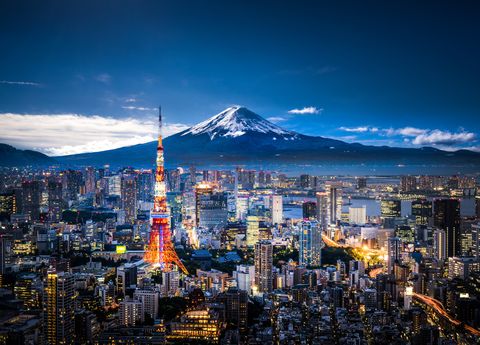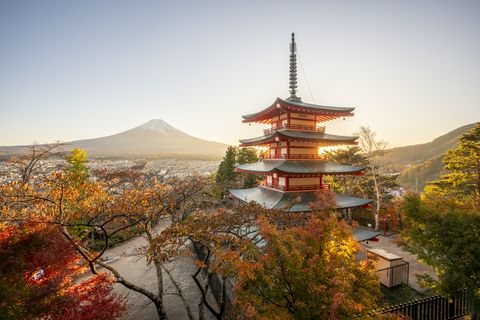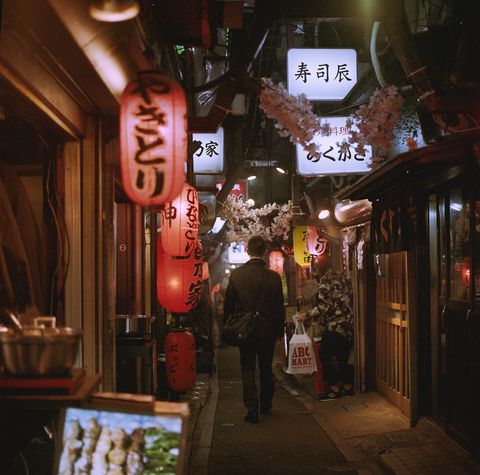I went to Japan for the first time in 2017. Two weeks in August, the proverbially worst period due to the humid heat and sudden downpours. At the time, my imagination was running 50% on the long lines highway of a composite America halfway between the Beat dream and the pulpy notes of a Tarantino film, the other 50% passed from silent stone stairways that lead to solitary temples in the woods, quiet cherry blossom gardens and intimacy that are built in slow motion, up to post-apocalyptic scenarios of metropolis-babels governed by robots or supernatural beings – in between, all shades of kawaii (in Japanese, “soft, cute”). I dreamed of Tokyo, and Japan in general, since time immemorial and my expectations were sky high: I was not disappointed. Even in the worst of weather conditions, my love for this country has only grown. After going there the first time, I yearned just to go back a second, and then a third, until I decided to drop everything and move there.
Yet, again, when I try to put together the words to describe what makes Japan so fascinating to our eyes, I find myself at a loss. Capturing the soul of this country is a complex undertaking, maybe to really grasp it all my life will not be enough for me. Yet for one reason or another, Japan is a coveted destination for people with interests and background more disparate; there is something, a secret astral conjunction, that seems to make everyone agree. This is demonstrated by the anxious wait that anticipated the reopening of post-Covid borders as well as the boom in flight bookings to Tokyo since October 11, 2022, when the time has not really come. And then, the interesting thing, is that Japan is simply not liked, often haunts. Perhaps, on the one hand, those who love Japan see themselves in an aspect at the base of the local culture or the tendency to idealize, mythologise, idolatrywhich in the land of the rising sun is seen in the phenomenon of semi-deification of idol, but also in the smallest everyday things, such as the disposition to patiently queue up for hours and hours just to try the new flavor of ice cream or something like that. And we do the same with Japan: we have transformed it into ahyperfixation well before the term spread like wildfire on social media. Not surprisingly, there are terms specially coined for those who take their obsession with Japan to truly extreme levels: a weeb (short for weeaboo) is who not only loves Japanese culture but gets to consider it superior, in all respects, to any other. But why does this country intrigue us so much?
The first reason is probably linked to a childish sense of adventure and discovery: for many, more or less consciously, Japan is the end of the world. Geographically, taking into consideration the Eurocentrism of the maps we are used to seeing, Japan is cloaked in fascination for the simple reason of being on the edge of the earth, it is the most extreme East, after it there are only large, infinite expanses of ‘water. Naturally this is not enough, California, which should represent its western equivalent, attracts for many reasons but certainly not that of appearing to us as another world. On the other hand, American culture is largely the daughter of European culture and, once defined as an individual entity, it has infiltrated the old continent in an increasingly massive way since the second half of the twentieth century, even ending up influencing Europe to the point of impose a whole series of social, economic and political macro-trends on it. The same cannot be said of Japanese culture which, yes, in part reaches us, but does not pervade every sphere of our daily life with the result of still appearing “exotic” to us. It is a phenomenon of historical legacy, let us remember that until almost the entire 1800s Japan was completely closed to the outside world due to the autarkic policy known as sakoku (“armored country”) introduced in 1641 under the Tokugawa shogunate; until 1868 the Japanese could not even leave the country. And in a certain sense, the legacy of this closure is still felt today: in a world where everything is thrown in our faces thanks to the internet, the Japanese do not use Instagram as assiduously or documentaryally as we do, their sites are practically only in Japanese, the use of English is zero, it is a culture that is difficult to penetrate from the web, in many ways in Japan you still have to “see to believe” because a lot happens behind closed doors.
And this “very” encompasses many interests, which attract the most disparate people. There is who goes for the food: how many documentaries and vlogs we have seen people who go to Japan to follow a healthy diet, taste “real sushi, because they don’t make it there like we do” (cited more or less by anyone who has been to Japan at least once), try delicacies such as the prized beef wagyu or taste the thousand variations of “local” snacks declined in the most absurd tastes? There are those who go Looking for spirituality: one of the most fascinating things about Japan is undoubtedly theanimismthe belief in kamidivinities or more properly spirits that can hide anywhere and represent almost anything (there are i kami of the four elements, but also those associated with abstract elements such as happiness or darkness, up to those that embody single places or revered people); it is a concept very far from us and it makes us perceive the magical and the supernatural in what surrounds us, it makes us appreciate nature more. All the Japanese perception of life is linked to this, care in keeping it as something precious and at the same time the quiet acceptance in the face of the transience and preponderant strength of nature over mere humanity. It is also linked to the attention of the Japanese towards the seasons: each season is celebrated for its colours, for the panoramas it offers, the observation of natural changes is still a real show for them to prepare with anxious anticipation and to enjoy as much as possible. For this there is an entire vocabulary related to seasonal changes and specific terms for related activities: hanami is the term for which indicates the custom of enjoy the view of the flowering trees during spring, we usually refer to the cherry trees and to fulfill this activity we organize picnics for the sole purpose of seeing the flowers together; in autumn the same importance is given to foliagewith momijigari the act of going in search of red maple leaves is described, again usually in company.
There are those who go for it fashion: brands like Comme des Garçons, Issey Miyake, Junya Watanabe, Yoji Yamamoto have gathered over the years legions of enthusiasts, at the same time also the street style of Tokyo continues to intrigue with the extravagance of the one-of-a-kind style forged in Harajuku and variations on the theme of traditional clothing such as the kimono. Then there are those who go looking for weirdness: Japan is considered a haven of extravagance, a sort of playland where you can find everything and in a sense it is. There are those who go because “Japan is the future” and will be seized with a wave of melancholy upon realizing that in many ways it has remained frozen in past dream of the future we imaginedand who goes to confirm or debunk myths such as “But is it true that the Japanese are so kind that they always bow?”, “But is it true that in Japan people sleep in niches (the capsule hotels)?” and so on. Of course, some people go because enthusiast nerd cultures: speaking with people of different nationalities, over the years I have in fact understood that our link with the universe animanga it is really particular compared to the rest of the world. If the Americans approach it at an advanced age (also) because they grow up with locally produced cartoons, for us it is different: thanks to the lack of Italian animation, from the 70s onwards in Italy with the “Japanese cartoons” (the soulsin fact) we grew up with them so much that, paradoxically, they are part of our childhood like that of the Japanese – who are shocked when they discover that, like them, we looked Sailor Moon, dragon ball, the Pokémon and so on. There are those who, evolving in tastes and genres, continue to enjoy them as a normal form of entertainment and those for whom they remain a childhood memory; in any case compared to other countries for which the souls they are a niche product, in Italy they are part of mass culture and, perhaps also for this reason, Japan has always seemed a step closer to us and at the same time a mythical, legendary place, a promised land. In a certain sense, for many, going to Japan is a bit like going to New York: these are places extremely represented in the entertainment culture we are used to, places that fascinate and intrigue us, which we perceive as absolutely distant from us and at the same time that we already think we know because we’re so used to seeing them from behind a screen and can’t wait to see for ourselves (you won’t be disappointed, promise). In short, each motivation would require a separate essay.
To simplify, I would say that Japan’s magnetism, its profound mystery, lies in the contradictionwhich is also what makes it hard to decipher, let alone define: Japan is everything and its opposite. Tokyo itself is a multi-faceted metropolis, one city visceral that hides under a mantle of composure and precision, a place that, if you are willing to let yourself be sucked in, reveals a thousand different souls. If New York is the essence of the metropolis – on the other hand the very concept of metropolis was born with it – Tokyo still contains folk features, elements that reveal its history more than many glass buildings: Tokyo is in ultra-futuristic skyscrapers as in alleyways illuminated by lanterns and animated by tiny ones izakayais on the giant screens that project a thousand trailer flanking every inch of walkable street and in the cacophony of jingles fired all at once in the arcades as well as in the sacred silence of a shrine found by chance as you turn the corner and climb stone stairs that seem to teleport you to another world, it is sensory overstimulation and intimate silence, it is a continuous cycle of creating taboos and breaking them, it is humility and vice, sacred and (very, very) profane. Tokyo is a city that grows vertically both up and down, you climb to the top of the world on the top of the Skytree from which the view is lost on a sea of lights and you descend into smoky basements that make you lose track of the world whole conception. Each venue is a microcosm, there are these tiny bars where there is only room for the counter and three stools and the faces of the other patrons deform and dissolve as in a dream wrapped in a pall of smoke, those places where you might know anyone and anything could happen. In Tokyo one really has the impression of being at the end of the known world, catapulted into another universe and perhaps it is this instability that we like so much, the fact that here we can feel safe to explore: what happens is mostly magical , seldom disturbing. The fact that Tokyo is among the safest places in the world gives us the impression that we can go down the rabbit hole without worrying about what will happen to us, something that can be experienced in few places in the world.



